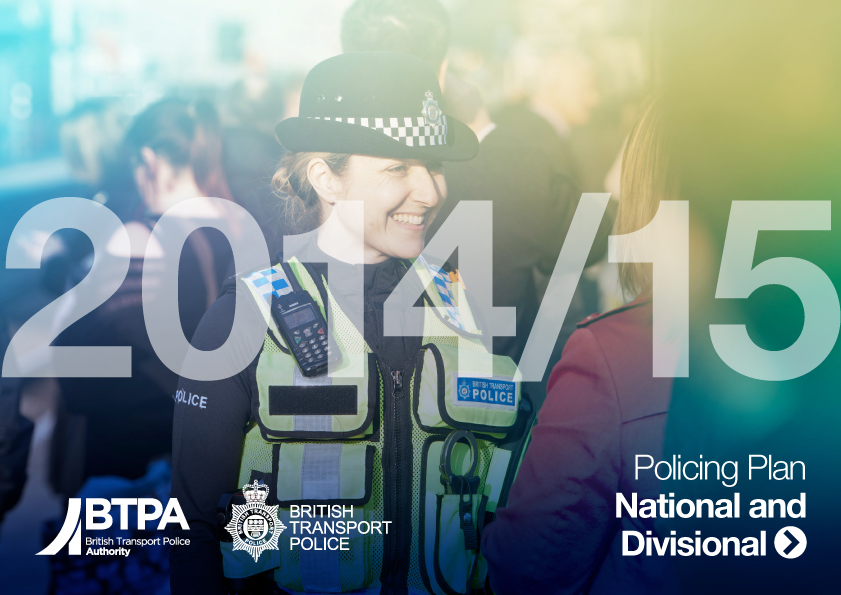Tube and rail passengers can expect an even safer and more reliable journey from tomorrow as targets to be met by the British Transport Police are rolled out nationally.
The British Transport Police Authority (BTPA), which oversees the work of the Force, has worked closely with the British Transport Police to produce this year’s National and Divisional Policing Plans.
The plans outline the targets the British Transport Police (BTP) are expected to achieve by the end of the year. The targets range from tackling passenger theft, preventing violence against rail staff and working faster to improve response times to incidents of crime so disruption to passengers is reduced.
This year’s plans are the result of feedback gathered by BTPA and BTP who spent much of the last 12 months finding out what matters most to those who own, operate, work or travel on the railways.
As a result of consultation, the Authority and BTP also took the decision to restructure the geographical makeup of the force to better align operations with policing needs on lines of route – effectively allowing the rail industry to influence the way police resources are deployed.
Previously the country was divided, with seven force areas policing Britain’s railways. From tomorrow it will be split into three divisions with an Assistant Chief Constable overseeing the work of each division. The restructure is expected to deliver better value for money and improved performance, which is good news for passengers, as well as encourage better integration with the rail industry. Each division will have sub divisions (eight in total nationally) with corresponding local policing plans which will reflect policing needs on all levels.
The 2014 – 15 National targets for the BTP are:
- Reduce crime by 4% on last year’s figures
- Reduce police related delay by 6%
- Achieve passenger confidence rating of at least 77.5%
- Spend at least 60% of budget on frontline resources
- Non suspicious fatalities to be cleared in 90 minutes
- Tracks with four lines should be partially re-opened after no more than 45 minutes
- Less than 7.3 days per employee off sick
BTPA, which celebrates its ten year anniversary in July, has commended the Force on successfully reducing crime on the railways year on year whilst passenger confidence continues to rise since the Authority was set up in 2004.
Millie Banerjee Chair of the BTPA said “We have kept our ears to the ground listening closely to feedback from those who own, operate, work, or travel on the railways resulting in policing priorities that match needs at a local level.
“We have also ensured the savings made last year have been ploughed back into frontline resources including investment in 180 – 200 more officers and new technology to ensure an efficient and effective policing.”
Acting Chief Constable of BTP, Paul Crowther added “As a police force we are always looking at how we might better meet the needs of the industry and the travelling public. Last year, we piloted two approaches to fatalities and disruption to see how we might create a more effective response. By working with stakeholders and targeting intervention at vulnerable people, with support from the appropriate health authorities, Op Avert was very successful at reducing the number of fatalities. This new approach will continue in 2014/15.
“In addition, we have looked at how we might reduce the impact fatalities have on delays on the network, whilst ensuring we can carry out our investigations sensitively. The partial opening of track, where possible, has successfully reduced delay minutes to the industry and the impact on passengers. This approach has enabled BTP to continue to carry out our work sensitively and appropriately, but with a reduced impact on services. The partial reopening of lines, at key sections of the network, is now a target for 2014/15.
“Throughout 2014/15, we will continue to look at ways in which we can evolve our approach to deliver the responsive, effective policing service passengers and the industry deserves.”

